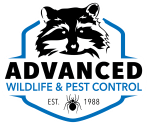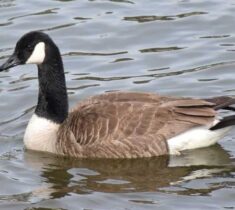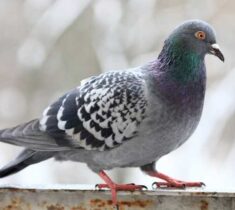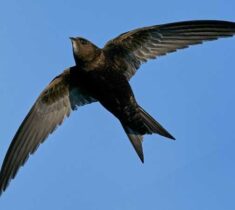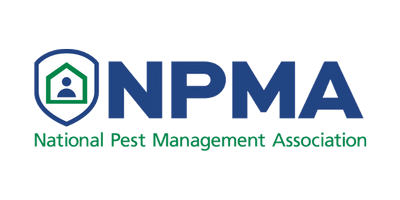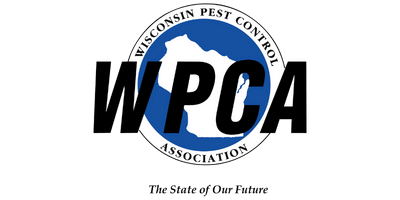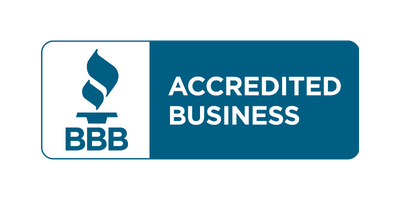Professional Bird Removal in Milwaukee, WI
We don’t usually consider birds a nuisance, but their nests and droppings can cause problems for homeowners and businesses. Bird droppings can transmit harmful diseases and corrode metal, damage paint, and deteriorate roofing and building materials over time. Bird nests often harbor parasites and can block vents, chimneys, and exhaust systems, increasing the risk of fire hazards and poor ventilation. Woodpeckers can also cause structural damage by drilling holes into siding, fascia, and trim.
The certified bird control specialists at Advanced Wildlife and Pest Control provide safe, humane, and effective bird removal and prevention services in Milwaukee and southeastern Wisconsin, helping protect your property and deliver long-term results.
Common Pest Birds in Wisconsin
Our Safe & Effective Bird Removal Services
Advanced Wildlife and Pest Control offers bird removal and exclusion services throughout Milwaukee and southeastern Wisconsin. Our certified bird specialists provide safe, effective solutions to deter, trap, remove, and exclude nuisance pest birds from your home or business.

Comprehensive Home Inspection
A licensed bird specialist will conduct a thorough inspection to identify the bird species causing problems. We will examine areas such as your roof, chimney, and vents for droppings, nesting materials, and entry points. Depending on the species, our experienced technicians will implement the appropriate measures in compliance with federal, state, and local regulations to solve your bird problem and prevent future intrusions.
Keep Birds Away From Your Property
We utilize a variety of visual, sound, and scent bird deterrents to encourage birds to leave the area. Bird spikes, bird netting, reflective objects, and multi-sensory bird repellents make it uncomfortable for birds to build their nests on your home, business, or other structures. Occasionally, traps can be used in situations with persistent birds and where appropriate permits have been obtained. Our technicians will also seal openings and install preventative fixtures like vent covers, chimney caps, or flashers to prevent birds.


Restore Your Home
After securing your home, it is crucial to clean and restore it properly. Bird droppings and nests can contaminate homes, storefronts, and structures, posing a serious health risk. These materials should be removed promptly. We provide bird nest removal services to eliminate abandoned bird nests and sanitation services to clean up bird feces and disinfect affected areas.
Keep Birds Away from Your Property!
Get rid of nuisance birds around your home or business with our safe, humane bird control solutions in Milwaukee, Wisconsin.
Give Us a Call Today!Are Birds Protected by Law in Wisconsin?
Many bird species are protected by laws and regulations in Wisconsin because of their important role in our environment. Birds are essential for pollination, seed dispersal, and insect control. The Migratory Bird Treaty Act of 1918 protects most birds, their eggs, and their nests from being killed or destroyed. In some instances, special permits from state wildlife agencies must be obtained before nests can be safely and humanely removed. Contact the bird specialists at Advanced Wildlife and Pest Control to request permit information and bird control solutions.
Bird Diseases
Birds carry a wide range of diseases and parasites. Their droppings, feathers, and nesting materials can transmit these diseases to humans. Some diseases that birds can pass to humans include:
Salmonella
Birds affected by salmonella may exhibit symptoms such as ruffled feathers, swollen eyelids, or lethargy. This disease can be transmitted to humans through contact with feces-contaminated food and water. Always wear disposable gloves when handling sick or dead birds, and remember to wash your hands after touching a bird feeder or birdbath. Symptoms of salmonella infection include diarrhea, fever, stomach cramps, nausea, headache, chills, and vomiting.
Psittacosis
Psittacosis, also known as parrot fever or ornithosis, is a disease caused by a microorganism. It is usually transmitted by birds such as parrots, parakeets, pigeons, turkeys, and ducks. Infection typically occurs when a person inhales the bacteria, often from dried droppings, mucous, and feather dust from infected birds. Psittacosis can affect the lungs and may cause inflammatory illness of the lungs. Symptoms often include sudden fever, chills, headache, general discomfort, and muscle pain.
Avian Influenza
Avian influenza, also known as bird flu, is a highly contagious viral disease that affects both domestic and wild birds. It usually does not infect people, but there have been some rare cases of human infection. This disease is spread through the feces of infected birds. Symptoms include fever, cough, sore throat, and pneumonia.
Histoplasmosis
Histoplasmosis is a respiratory disease caused by a fungus that grows in dried bird droppings. Chickens, blackbirds, pigeons, and gulls can carry the fungus. Histoplasmosis is common in places like chicken coops, old barns, and bird nests. Inhaling the airborne spores of the fungus can cause infection. Symptoms can include a flu-like illness or a serious lung infection.
Candidiasis
Candidiasis is a fungal disease caused by the yeast Candida albicans. The yeast infection can affect the skin, mouth, respiratory system, and digestive system. It can be spread by pigeons through their droppings.
Cryptococcosis
Cryptococcosis is caused by a yeast found in the intestinal tract of pigeons, sparrows, and starlings. Birds spread it to humans through their droppings. Symptoms include fever, coughing, chest pain, headaches, neck pain, and nausea.
